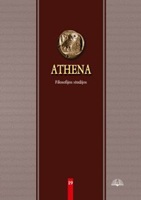Kaip mūsąjį teisingumo ir atsakomybės supratimą sąlygoja karo diskursas?
How Does the Discourse of War Shape Our Understanding of Justice and Responsibility?
Author(s): Danutė BacevičiūtėSubject(s): Ethics / Practical Philosophy, Political Philosophy, Social Philosophy, Contemporary Philosophy, Russian Aggression against Ukraine, Russian war against Ukraine
Published by: Lietuvos kultūros tyrimų
Keywords: war; violence; justice; responsibility; time;
Summary/Abstract: This article explores how our understanding of justice and responsibility is shaped by the discourse of war. It begins by highlighting the impotence of the United Nations and other international peacekeeping organisations in the wake of Russia’s war in Ukraine, demonstrating the failure of the “humanitarian turn” in international law and politics. Drawing on Walter Benjamin’s discussion of the law of war, René Girard’s description of the genesis of the legal system, and Emmanuel Levinas’s “law of being”, the author examines the relationship between violence and law, distinguishing two variations of justice: justice as the victor’s justice and justice as the principle of retribution. By discussing the relationship with the Other, the author shows that war destroys not only the otherness of the Other but also one’s own identity, which, in its turn, implies a kind of reciprocity of forces in which, ultimately, no interpersonal relationship remains. The paper argues that the sense of injustice and the demand for justice arise from a much deeper source than the sphere of law and politics. Through an analysis of Emmanuel Levinas’s and Paul Ricœur’s notions of responsibility, it is shown that the relationship between justice and responsibility allows us to conceive of justice as an effort to reconcile two incommensurable demands: equality and proximity to the Other. A comparison of Levinas’s and Ricœur’s positions reveals how the radical (Levinas) and moderate (Ricœur) concepts of the Other are defined in relation to the discourse of war: the radical otherness of the Other implies the irrevocable responsibility of the self, while the moderate otherness of the Other implies responsibility in the form of resistance to the aggressor.
Journal: Athena: filosofijos studijos
- Issue Year: 2024
- Issue No: 19
- Page Range: 124-136
- Page Count: 13
- Language: Lithuanian

